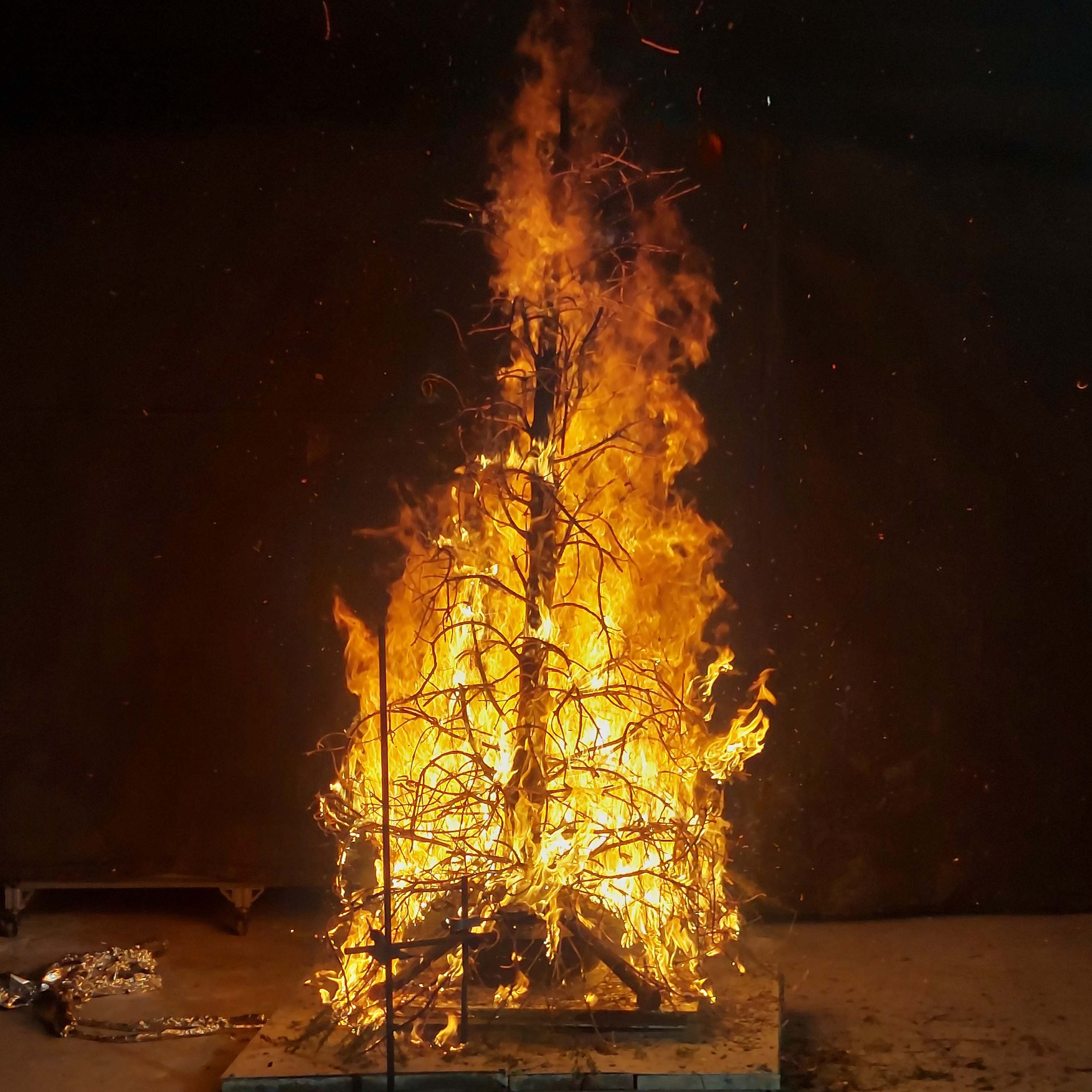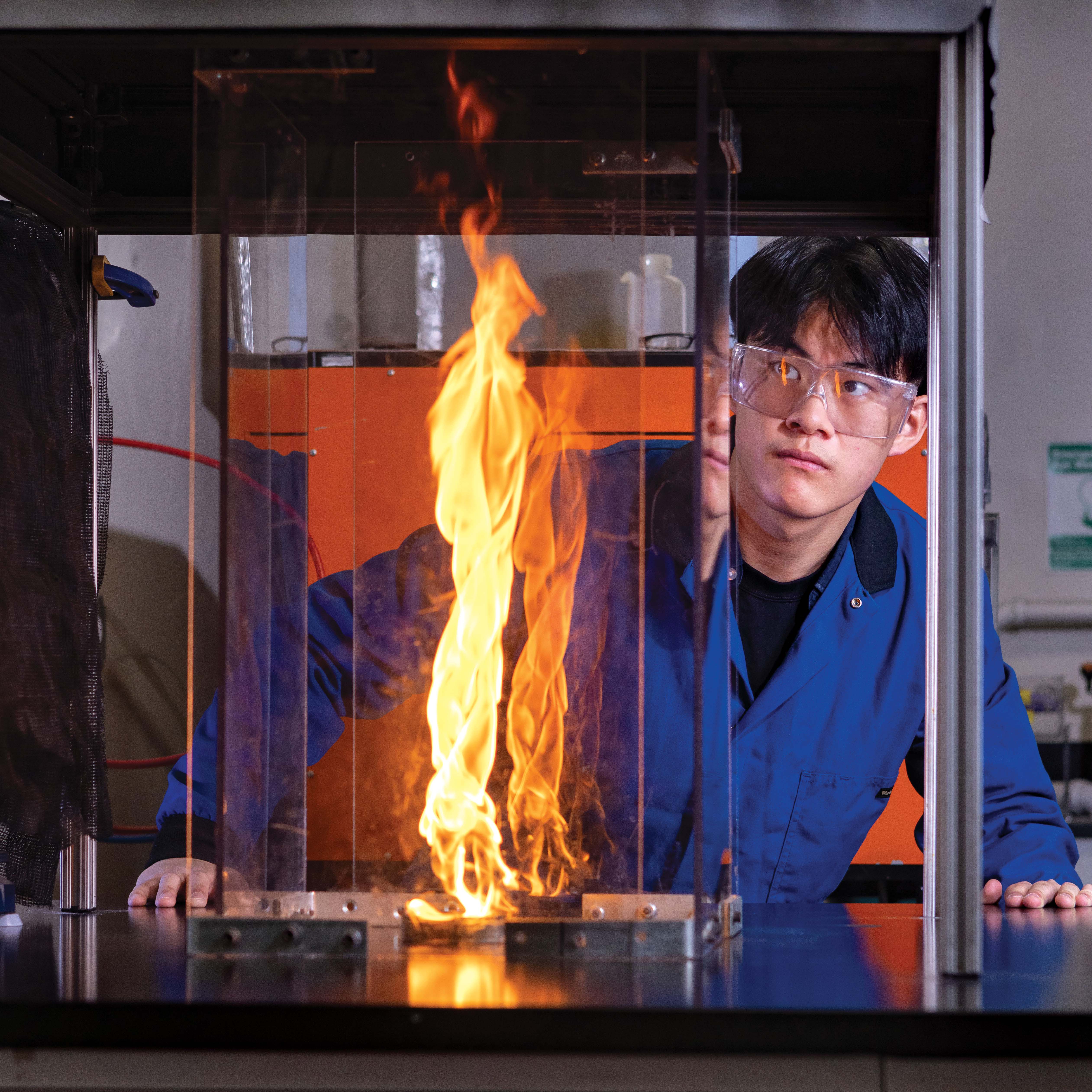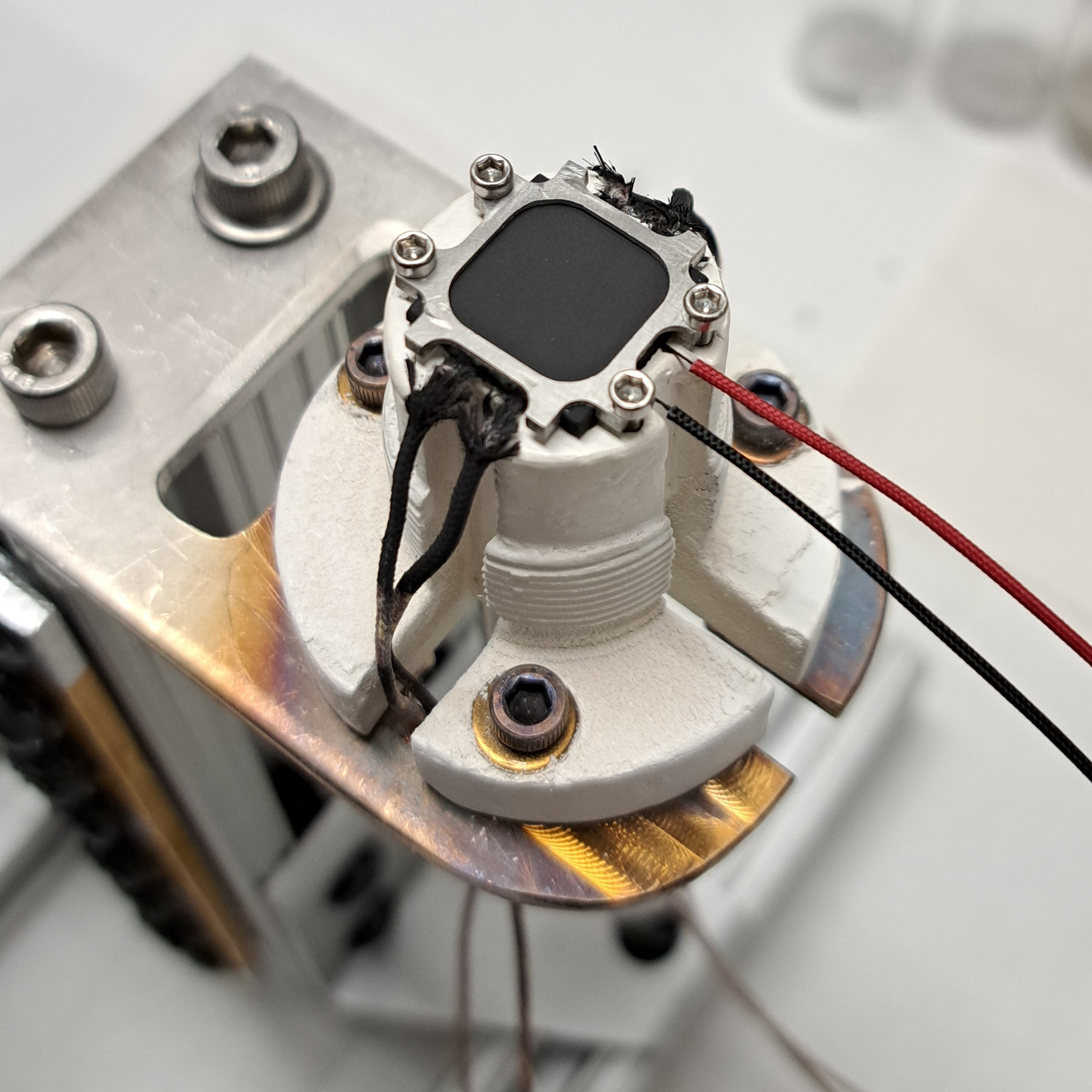News Story
FPE Welcomes Two New Faculty Members

From left: Shuna Ni and Fernando Raffan-Montoya.
The University of Maryland (UMD) Department of Fire Protection Engineering (FPE) is pleased to announce the arrival of two new assistant professors who will join the faculty starting in August, 2022. Shuna Ni comes to us from Utah State University, while Fernando Raffan-Montoya moves up from his current FPE Faculty Specialist and Lab Manager position.
Shuna Ni is currently an assistant professor in the Department of Civil and Environmental Engineering at Utah State University (USU), bringing structural fire engineering and risk-engineering expertise to UMD. Prior to this appointment, Ni worked in the Johns Hopkins University Multi-Hazard Resilient Structures Group as a postdoctoral fellow. At JHU, she established a risk-informed framework for evaluating the structural fire safety of buildings, investigated the fire-safety issues particular to tall mass-timber buildings, and proposed a simulation procedure for studying the post-fire seismic behavior of cold-formed steel buildings. Her research results have been incorporated into commercial software, disseminated in peer-reviewed journals, and presented at national and international conferences.
Ni received a B.S. degree in civil engineering and an M.S. degree in structural engineering in China before moving to the U.S. for her Ph.D. studies. Ni received a Ph.D. degree in civil engineering from Texas A&M University, College Station, in 2018, with an emphasis in structural engineering. The results of her doctoral studies have advanced the knowledge of structures under sequential fire-earthquake loads and provided the engineering community with predictive methods for assessing the potential damage to structures from such hazards.
Ni’s research vision is to increase built environments’ resistance and resilience to fires and fire-related multiple hazards, at both the single-structure and community levels. Her current research interests include probabilistic structural fire engineering, fire safety of tall mass-timber buildings, impacts of fire on civil infrastructure, fire-related multiple hazards, smart firefighting, and fire forensics.
Fernando Raffan-Montoya immigrated to the United States from Colombia as an 18 year old in pursuit of his undergraduate studies. After graduating summa cum laude with a B.S. in Aerospace Engineering from the Florida Institute of Technology, Raffan-Montoya obtained M.S. and Ph.D. degrees in Aerospace Engineering at UMD where he worked on the comprehensive experimental characterization of slot film cooling flows for propulsion applications – he was co-advised by Profs. Chris Cadou and André Marshall. During his Ph.D. studies, he was accepted into the A. James Clark School of Engineering Future Faculty Fellowship program where he participated in seminars and practicums aimed at preparing doctoral students to enter academia. Raffan-Montoya subsequently joined FPE Professor Stanislav Stoliarov’s research group as a postdoctoral researcher in the area of material flammability, helping to develop the Milligram-scale Flaming Calorimeter – a novel instrument for the measurement of key flammability parameters of materials using milligram-sized samples.
Recently, Raffan-Montoya has served as a faculty specialist with roles as laboratory manager, lead engineer for the Fire Testing and Evaluation Center (FireTEC), and department instructor. In this capacity, he has supervised the facilities and equipment of the instructional laboratories, provided support for the department’s laboratory-based courses, interacted with multiple external customers in order to provide high quality standard and custom fire testing, as well as teaching fluid mechanics and heat transfer courses to undergraduate students in the department.
Raffan-Montoya’s current research interests are in the areas of minimally intrusive diagnostics, test standards, fire toxicity, fire suppression and wildfire early detection. As a believer in interdisciplinary research, he aims to use his background as an experimentalist to explore a variety of problems through careful experiments, the design of new testing instruments and methods, as well as through close collaboration with numerical modelers in order to further advance the field of fire science.
The department heartily welcomes them both!
Published February 11, 2022









